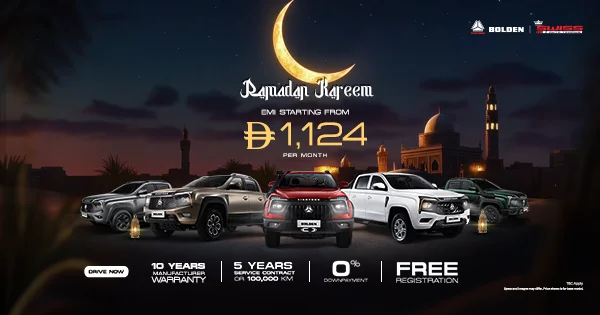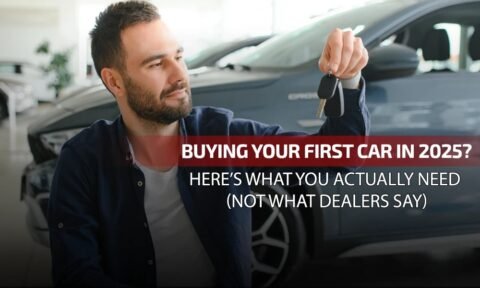Car dealership scams have increased a lot in the past few years. And I’m here to make you aware of all the tactics that I know of, which are used by dealerships today.
Buying a car is exciting. It’s also stressful. In 2025, the car-buying game has changed—but tricks and scams haven’t.
I’ve seen buyers walk into a showroom and end up with the wrong vehicle, overpriced financing, and hidden fees. I’ve felt the sting firsthand and heard countless stories from friends.
That’s why I wrote this. To help you spot scams before they hit your wallet.
Key Points Discussed in This Blog
- Bait-and-switch tactics: Ads lure you in—dealers steer you away.
- Junk fees: Hidden costs can add hundreds or thousands.
- High APR financing traps: Good credit doesn’t guarantee good rates.
- Add-on upsells: Optional extras pushed as mandatory.
- Racial pricing bias: Studies show min ority buyers are overcharged.
- Digital and identity fraud: Online tactics to steal your data or money.
Bait-and-Switch: The Classic Move
Ever seen a “$15k car” online?
You head to the dealer only to be told it’s “sold” or “not operational.” And then they toss you the model that’s a notch higher in price and model instead.
In Chicago, a buyer named Tanisha showed up with cash. She was sold a 2019 Sentra at 24.9% APR—when she planned to buy a cheaper model she saw online.
It was bait-and-switch at its worst. She felt trapped in a loan she couldn’t afford.
I think these tactics prey on trust and urgency.
Rule of thumb: get the VIN in writing before visiting. And walk away if they act cagey.
Junk Fees: A Silent Robbery
Junk fees are extra charges you didn’t budget for: VIN etching, prep fees, extended warranties, that you never asked for.
According to reports, 71% of used-car buyers faced bait-and-switch or junk fees—averaging $640 extra.
I think buyers don’t know how much they’re paying until it’s too late. Things like insurance, DMV, document prep—that’s fine.
But optional add-ons? They aren’t mandatory.
So, the next time you are planning to visit a dealership, ask them to tell you the barebones cost. Without any add-ons and ‘modifications’.
Pro tip: Always demand an “out-the-door” price before stepping into a dealership.
Financing Traps: Not So Sweet Deals
Dealers push financing as if it’s the best option. If a car is out of your budget, the dealership people will present the price to you as if it’s affordable!
Credit where it’s due, they are VERY convincing with the option to finance.
What you need to realise with financing a car is, you are locking yourself in for ‘x’ number of years. Yes, a $50k car that you can get today for only $1.5k sounds amazing!
But let me show you the math here:
Base price: $50k
Interest rate based on credit: we’ll take 11% (it may be higher or lower)
Finance period: 4 years
Per-month cost for finance: $1.5k
Total money spent on the car: $72k
You may think you’re getting the car for cheap, but in the end, it’s the dealership that benefits.
Now, I’m not saying financing is a scam. It most certainly is not. But opt for finance when you know you can afford it.
If you planned on getting a car for $30k, then getting a $50K car on finance doesn’t make sense!
Instead of signing dealer documents, I think you should get pre-approved through a bank or credit union. That sets a rate baseline. Then compare.
If the dealer’s rate is higher, stay firm or walk.
“Add-On” Upsells: The Salesperson’s Trojan Horse
Slick salespeople will say, “this extra is part of the package.” But more often than not, it’s overpriced or unnecessary.
The FTC found dealers illegally hiding add-ons via e-contracts—up to 75% of buyers got unwanted extras.
And Illinois recently fined dealers for charging “required” add-ons on CPO cars—80% of customers were duped.
I don’t believe add-ons are bad. But I do believe you deserve clear, informed consent. Always check the contract line by line.
Racial Pricing Bias: A Hidden Agenda
This one is a tough pill to swallow.
Studies report that Black and Latino buyers are charged additional fees when compared to caucasian people.
That’s discrimination—and illegal. I trust fairness, not hope. If you feel you’re being treated differently, I urge you to speak up or walk away.
Digital & Identity Fraud: The Online Threat
Not all scams happen in person. Dealers collect personal info. That makes them targets.
The FTC is handling a spike in complaints about digital auto-fraud—email phishing, fake websites, and misdirected payment scams are on the rise.
What I’ll suggest you do is, don’t click random site links. Confirm dealership URLs, use secure payment methods, and check for HTTPS.
Regulation Roulette: No CARS Rule Means More Fraud Risk
FTC created the CARS rule to ban bait-and-switch and junk fees, but a federal court overturned it in early 2025.
Dealers now operate in a grey zone. Without federal checks, scams may rise again.
I think being aware as a buyer is very important. Research pricing, compare deals, and don’t commit emotionally.
Why Do Dealers Scam?
I’ve always wondered why dealerships like to scam people. Not every dealership out there is going to scam you, but the select few that do, I truly wanted to know: why?
Upon doing some research online, talking to people who have worked at car dealerships previously, the information I got was quite interesting.
The thing is, dealerships rely on profit margins. They get a certain percentage of the sales they make.
Here’s a screenshot from the Reddit thread to help you understand:

I found that US dealers earn $11.8 billion annually from bait-and-switch tactics.
More scams mean more $$$ for them. Less regulation means fewer risks. That’s why vigilance matters.
How to Protect Yourself
Here’s what I’ll recommend:
- Get a written VIN-based price upfront.
- Know which fees are legal—title, tax, registration.
- Compare financing with your lender first.
- Add-ons? Only with clear agreement.
- Inspect contracts carefully.
- If you sense pressure tactics or bias—walk away.
- Use secure payment channels.
- Ask for printed copies of everything.
These steps may feel slow—but they keep you in control.
Final Thoughts
Buying a car is not the easiest task in the world, but it shouldn’t feel like you are crossing a minefield.
Being aware of the tactics I mentioned will make you a smart buyer who knows what they want and what they don’t.
I trust honest dealers and believe in fair deals. If you do too, you can avoid the car dealership scams.
Everyone should leave the lot with confidence—knowing they made a smart, safe purchase.
So, if you or anyone you know is planning to visit a car dealership, show them this blog, and It just might help you/them make the right decision.







